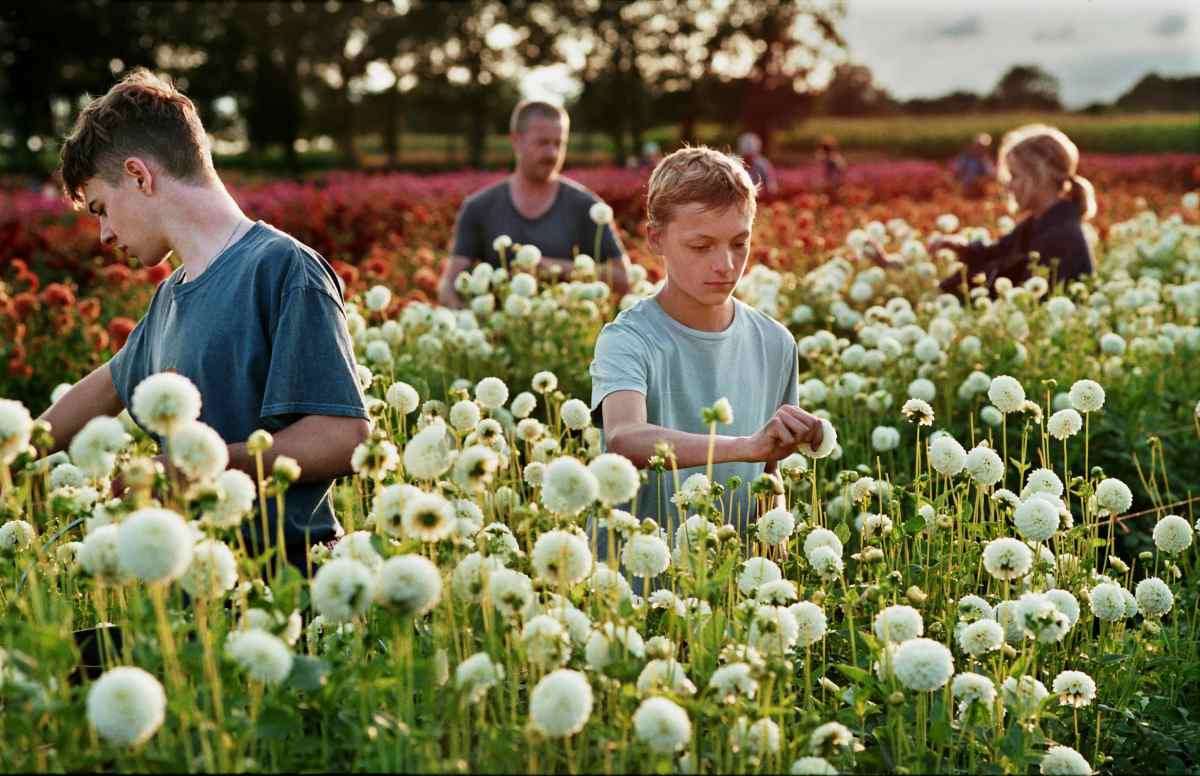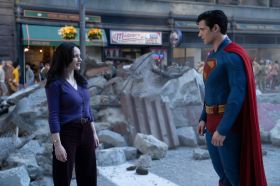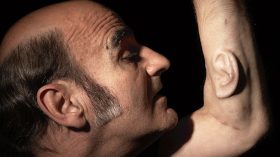Lukas Dhont’s Close opens with an absence of any imagery; we simply hear the voices of two young boys playing. When we fade in to the scene we see our two main characters, Léo and Rémi, playing soldiers in an abandoned structure at the back of a flower farm.
When they emerge we see the visually striking and main symbolic motif of the film: the massive flower field where Léo’s parents work. They tirelessly pick petals and tend to the delicate buds as Léo and Rémirun and play. The colours come bursting to life in an over-saturated palette that immediately evoke the poppy field scene from The Wizard of Oz.
Despite its first impressions, Close doesn’t even touch the point of greatness.
Best International Feature?
Close (2022/released in Australia in 2023) is a coming-of-age drama directed by Lukas Dhont – his second outing as director after his debut film Girl (2018). The film stars Eden Dambrine as Léo, Gustav de Waele as Rémi, Emilie Dequenne as Sophie and Léa Drucker as Nathalie. Since its run in the festival circuit it’s attained a bunch of awards: The Cannes Film Festival Grand Prix, the André Cavens Award for Best Film (Belgium), and the Sydney Film Festival’s top prize. It’s also up for a ‘Best International Feature’ Oscar.
But many laurels do not a great film make. In the case of Close, I believe this is due to its overly simplistic narrative, and heavy moralising about toxic masculinity, queerness, and the limits of male friendship.
Léo and Rémi are 13-year-old boys in Belgium, who have such an intimate friendship that they sleep in the same bed frequently. The love they feel for one another is threatened and frayed when a schoolmate grills them about being a ‘couple’ – a perspective they boys seemingly haven’t considered, and one that sows the seeds of homophobia between them.
Emotional manipulation
To watch a friendship fall apart is heartbreaking – even more so when the reason is avoiding suspicion of being gay in a modern school environment. The film leans heavily on this emotional fallout, escalating the consequences of it until the unthinkable happens. Now left without his best friend, Léo must live with the guilt of deliberately pushing Rémi away.
What follows is many, many scenes of actors crying. I found myself strangely devoid of tears, however, as I became all too aware of the way my emotions were being manipulated. There’s a line spoken by an unnamed student about halfway in to the film’s 104 minute runtime, which states the filmmaker’s intentions clearly: ‘Being strong isn’t about not crying’. This line, combined with shots of the flower farm being bulldozed, and the handheld camera footage following the children around, make for a far too obvious statement: Youth is fleeting, and masculinity can be incredibly toxic!
It’s not that I disagree with the lesson: it’s that I already knew those things, and a film that expects me to treat its tired moral guidance as a revelation is just annoying.
Final thoughts
The guilt that eats away at Léo for the remainder of the film is palpable: the shots get tighter and more shaky, and an aggressive combo of red and yellow dominate the colour grade. But nothing else really happens – the narrative has traded in its emotional climax too early, and we have nowhere left to go after that.
I don’t want to give off the impression that I’m completely heartless, however. The despair I felt for Léo, Rémi and their parents who desperately try to hold their lives together, was real. The performances of the two young men in the lead roles were particularly impressive, and I can see bright futures for them both. The film also handles the sensitive topic of suicide quite well; that is to say, without glamour.
Close is predictable and dawdling, but it’ll still tear your heart out.
Close is out in Australian cinemas from 16 February 2023.
ScreenHub’s latest film reviews
Actors:
Director:
Format: Movie
Country:
Release:





